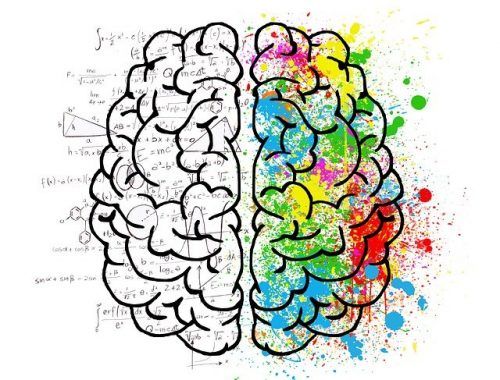Can You Learn A Language At 30, 40, 50 And Beyond?
Can you learn a new language later in life? Well, the answer is: of course! You can learn almost anything new at any age. There are certainly differences and setbacks you will encounter as an adult learner than you would as a child, but most of these can be overcome with hard work and determination.
There was a dangerous myth I heard a few years before I embarked on my language journey. It went something like this: “you can’t learn new vocabulary after 18.” Being stubborn, I set out to prove everyone wrong. I knew it couldn’t have been true.
Well I’m pleased to tell you that, as of today, I speak – to varying degrees – five foreign languages, all of which I learned after the age of 25.
Is there any truth to the myth?
There is some truth, but it’s not as simple as that, and we’ll explore why. For us to do that, let’s take a brief (but important) look at how our brains process new languages as adults.
Where is language stored?
For the vast majority of people, our ability to use language is governed by the left hemisphere of the brain, in two key areas:
- Wernicke’s area – this deals with the comprehension and understanding of speech
- Broca’s area – not only deals with language comprehension, but, most importantly, language production, i.e., speaking.

Language in general, both native and non-native, is stored in both areas; however, here’s where things get interesting.
Adult language learners store their non-native language in a different part of the brain than young children. A study found that in older learners, a new Broca’s area pathway was formed, which stored their new language.
What this means is that adult brains, in a sense, treat their new language as alien, something apart from their native tongue; whereas children make no real distinction between the two languages, making it easier for them to speak it naturally, as though it is their native tongue.
Young people are better at forming patterns and can absorb the language in a more natural way, as they did their native tongue. They don’t overthink it, nor do they try to understand the logic behind anything: they simply live it.
Adults, for the most part, cannot do this. For this reason, an adult should not expect to gain native-level fluency in any new language they learn.
But why doesn’t this matter?
The great news is, you don’t have to speak like a native to be fluent. Fluency simply means you can communicate and understand a language with little difficulty, and this is very achievable at any age, in any language. Most multilingual people fall into this category of speaker – fluent, but not natively fluent.
What’s even more inspiring is that there are certain benefits to learning a new language as an adult than as a child.
Some benefits of language learning as an adult
Able to grasp grammatical concepts much faster
Having spent decades mastering your native language, you’ll be far more equipped to understand new grammatical concepts, and you can quickly make sense of the information you learn.

Recognize language cognates
Your long exposure to your native language, and extensive vocabulary, will make it easier for you to spot language cognates (words in your target language that share the same or similar spelling, meaning and pronunciation as those in your native language).
Example: because I knew what the English word “benediction” meant, as soon as I spotted a similar word in Spanish, “bendición”, I was able to quickly understand it.
Helps prevent degenerative brain disorders
Learning a new language has been proven to help in the prevention of progressive brain disorders like Alzheimer’s and dementia. When you speak a second language, studies have shown that your brain is “more resilient to damage” than that of monolingual people.
This article from Alzheimer’s Research UK discusses that in detail.
Travel
You can travel abroad, either for short breaks, longer stays, or even relocation to immerse yourself in your target language. This forces you to speak it.

Source or buy language materials
You can take advantage of free language exchange apps like Tandem, buy online and offline courses, pay for tutors etc.
Being an adult learner does put you at a disadvantage, however. Here are some of the difficulties you will face, with solutions.
Difficulties and how to overcome them
Memory loss as we age
Our brains naturally deteriorate over time, and our ability to remember things inevitably starts to decline. There are ways to combat this, however, which I discuss in detail the post Learning a new language with a bad memory. One of the things you can do is use mnemonics to help you retain what you learn.
Lack of native exposure to nuances, idioms and slang
Languages are a living, breathing thing that evolve and expand in interesting ways, ways that only native speakers can truly understand. They use and contort their language liberally and fluidly, creating cultural nuances and idioms that are hard for non-native speakers to understand.
Example: A native English speaker would feel comfortable adding the suffix “-ish” to create a word that would sound nonsensical to a non-native; yet they would be immediately understood by other native English speakers.
With practice, plenty of exposure, and a full immersion into the language’s culture, you can pick up on some nuances over time, and add slang and idioms to your lexicon as you come across them.
Pronunciation woes
It’s highly unlikely that you’ll ever sound like a native speaker, so expect to have an accent. (But accents are awesome anyway!) There will be difficult sounds that you may never learn to reproduce, sounds native speakers learned and perfected as children.
Examples: The English “th”, the Spanish rolled R “rr”, and the Russian “ы/ь” become much more difficult to pronounce for non-native speakers learning them in adulthood.
This would simply require more practice, but it’s certainly possible to learn to pronounce new sounds. There are plenty of videos on YouTube that will instruct you on how to do this. Check out this funny one that teaches you how to properly make the Russian ы/ь sounds.
Life gets in the way – no time
Adulthood is full of responsibility – work, family, etc. This means that you might not have enough time to devote to language learning, and thus won’t get the continued exposure you require.
You’ll need to set goals and stick to them. Set aside some time every day devoted to language study, and try not to miss a day. Repetition and habit are the keys to gaining fluency.

Conclusion
Whether you’re 30 or even 100, it is possible for anyone, regardless of age, to learn a second (and third, and fourth, and… you get the point) language.
Okay, so you’ll never speak like a native, but that’s perfectly fine. If you stick at it, you will gain fluency. And if anyone tries to convince you otherwise, well, start learning today and prove them wrong!



